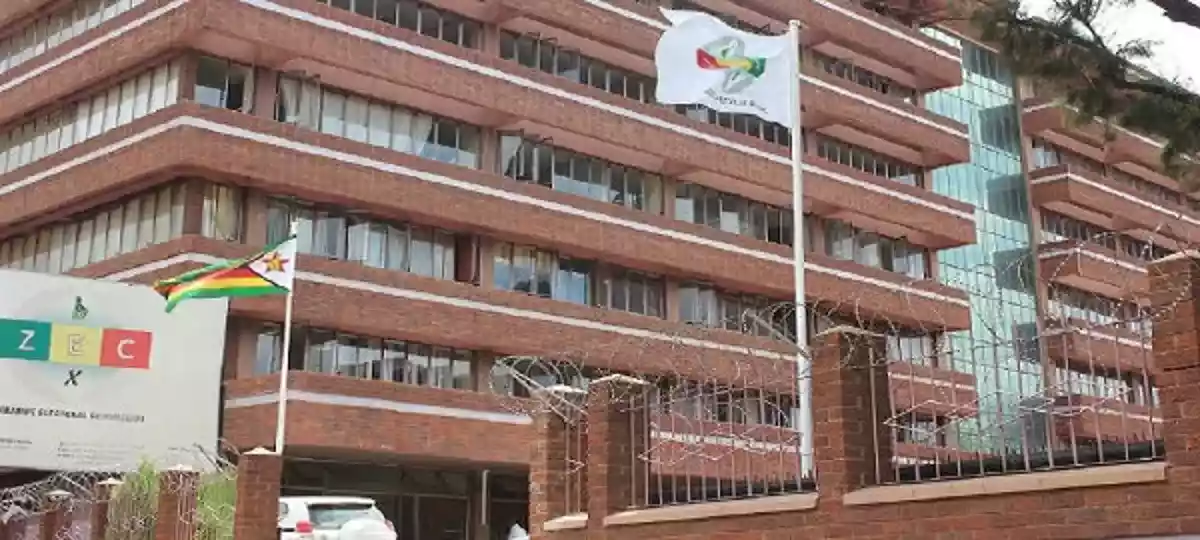
SEVERAL general elections in Zimbabwe have come and gone with a lot of brouhaha from opposition political parties bitterly complaining about the conduct of the Zimbabwe Electoral Commission (Zec) in managing the elections. The object of this article is to shine the sense perceptions about Zec as an independent commission.
The opposition parties in Zimbabwe have, over the years complained about the absence of an even playing field for the political players when it comes to harmonised elections. What has stood out in the polemics of the opposition parties is that Zec is a stage performer of the ruling party, Zanu PF.
The alleged alignment of Zec to the ruling party has been inferred from the way Zec has carried itself in terms of its oversight function in ensuring free, fair, credible and transparent elections (section 239 of the Constitution) given that its voice has not filtered through to moderate the acres of space and time allotted to campaigning for the ruling party on both State television and radios.
The imbroglio for the opposition political parties has been that Zanu PF is given more time to campaign at the expense of opposition parties in both the electronic and print media. The argument by opposition political parties has also gone a stage further to cite the latest hefty nomination fees for contesting at the various levels of political governance where “Zec and Zanu PF” have been seen to be in agreement over the fees.
Another area of disagreement that has seen the opposition political parties having an issue with Zec and Zanu PF has been the delimitation of constituencies. The bone of contention has been that of gerrymandering.
Essentially, the thinking has been that the boundaries of the constituencies were done with bias towards giving the ruling party an advantage over opposition political parties in that where constituencies were collapsed, it was to the disadvantage of the opposition as the said constituencies were perceived to be the monoliths of the opposition.
The delimitation argument further borders on the allocation of more constituencies in areas that were perceived to be the ruling party’s strongholds. Furthermore, the toxicity between the opposition and Zec came obout as a result of the latter’s failure to have the voters roll shared as a public good. The perception that has had an octopus grip on the thinking of the opposition parties has been that you cannot sit for an examination for which you have no knowledge of the syllabus. By way of analogy, the voters roll is the syllabus that the students (voters) need to be familiar with before they take their examinations (voting).
Given the above tiff between the opposition political parties and Zec, the writers are of the opinion that Zec should be like a midwife whose principal function is to prepare a hygienic environment for the delivery of a baby. For the midwife, the sex of the baby is immaterial, but the conditions under which the baby is delivered should be shipshape to allow the baby to thrive afterwards. Zec should, therefore, be manned by men and women of exceptional perspicacity whose alacrity for objectivity should be beyond any reasonable doubt.
- RG's Office frustrating urban voters: CCC
- Fast-track delimitation, Zec urged
- 'Political parties must not be registered'
- Zec to address nomination fees outcry
Keep Reading
Zec commissioners should at all cost avoid earning vertical trust deficit from all the players. The importance of trust in the electoral processes can never be over-emphasised. Trust gives credence and legitimacy to the outcome of the electoral process. Trust deficit saw the harmonised elections in 2018 marred by post-election violence and legitimacy issues, denting what most observers had concluded
to be a generally peaceful electoral process. Therefore, key lessons must be drawn from the 2018 harmonised elections to avoid legitimacy issues and unnecessary loss of lives. The election seasons come and go, but Zec, political players, the electorate and other key stakeholders must vow that in whatever they do no Zimbabwean life must be lost because of politics. Failure to do so, history will judge them harshly.
- Dumisani Simango and Kudakwashe Nyoni are researchers writing in their individual capacities.










